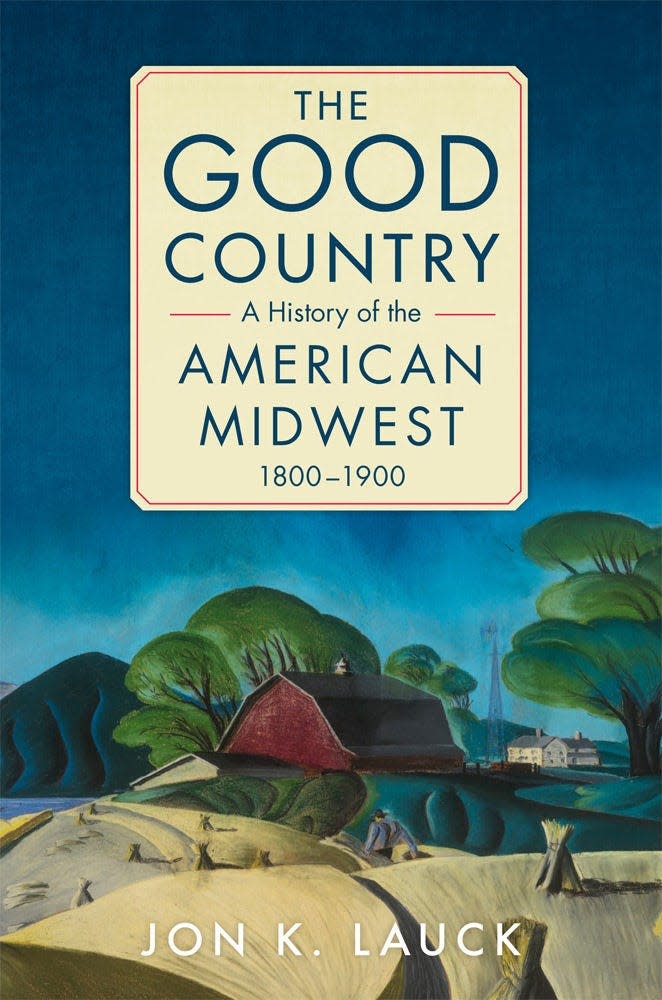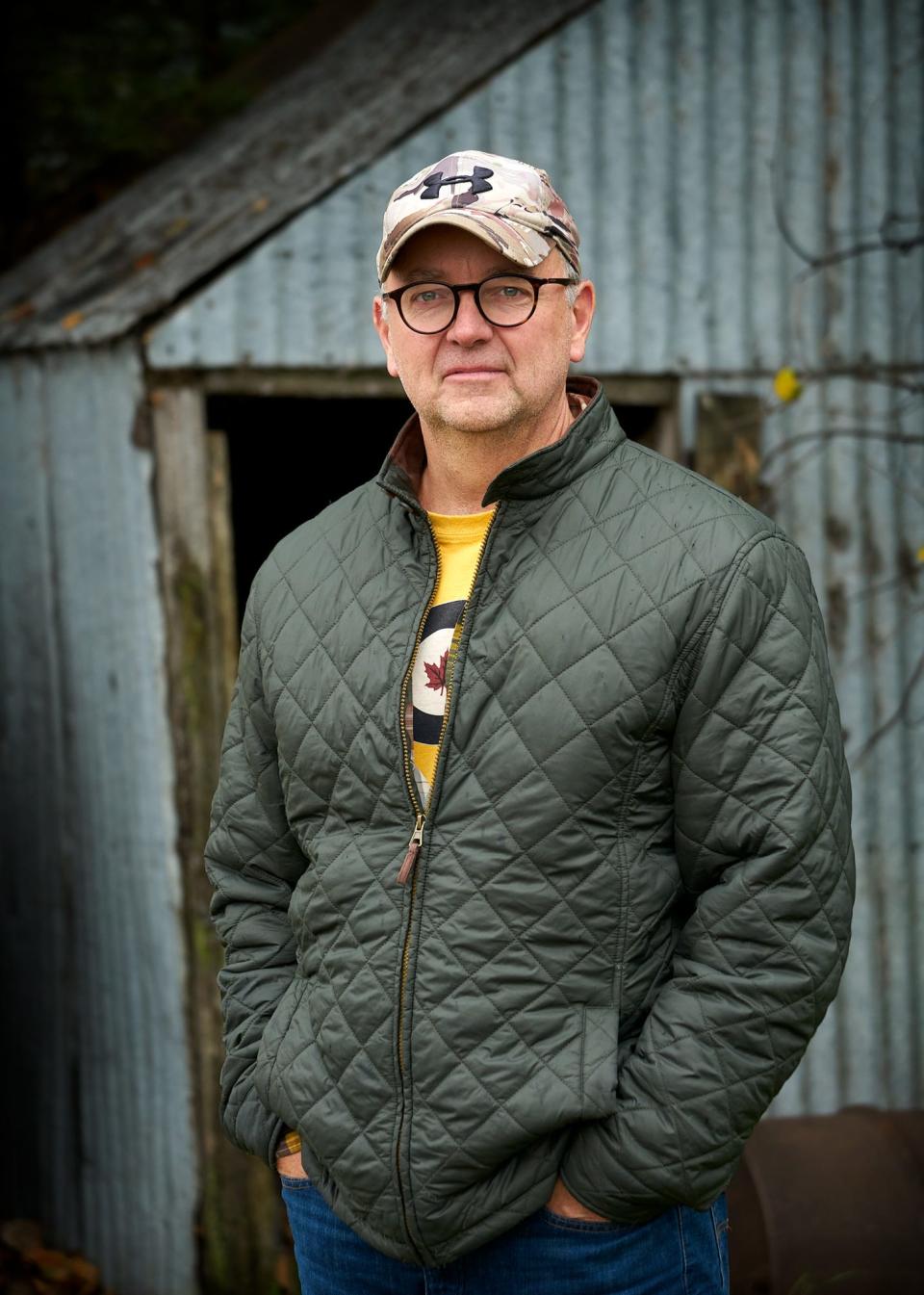Why the Midwest matters: Jon K. Lauck makes the case for the importance of studying Midwest history

It was December 24, and historian Jon K. Lauck and his family were stuck at the Omaha Airport. Their rental car reservation was canceled. They needed to get to his mother's home in Sioux Falls for midnight Mass.
Lauck sent up a flare on Twitter, asking for a ride. In short order, he sent out another Tweet: "A great American from Madison, South Dakota who now lives in Nebraska, just texted me and said he'd give me a car!"
Those Midwestern moments are the sorts of things that fire Lauck's imagination and keep him going on his push to raise the status of Midwest history.

Lauck, South Dakota born and raised, was among the founders of The Midwest History Association. His latest work is "The Good Country: A History of the American Midwest 1800-1900," billed as the "first-ever chronicle of the Midwest’s formative century,"
He makes the case that the Midwest of the 19th century, "constituted the most advanced democratic society that the world had seen to date, but its achievements are rarely highlighted in history texts and indeed seldom mentioned."
He aims to fill in the blanks of what he sees to be a terrible historical omission.
In a recent conversation, Lauck discussed his new book and his push to restore Midwest history to a central place in the study of the United States.
What defines 'The Good Country?'
Well, it's highly democratic, small d, much farther advanced than any other place in the world as it emerged. It has a dedication to the rule of law, civic participation, a robust education system up and down the line K-12 and Higher Ed. Higher Ed was kind of invented and perfected in the Midwest. And I think a culture of neighborliness, community, and taking care of your friends and neighbors.
What is the Midwest stereotype that most offends you?
The stereotype that's most offensive is that nothing happens here so we can just ignore this region. The Midwest was the biggest region in the country at the end of the 1800s. It's where all the manufacturing took place. It's where we grew our food. And it helped shaped early America and helped win the Civil War. And these are things we forget and that we neglect and people on the coasts aren't going to look out for us, so we need to do it.
The indispensable Midwest person of the 19th Century and the indispensable event are tied together — Abraham Lincoln and the Civil War. Can you explain it, briefly, why it was important and why it was the making of the Midwest?
Well, the greatest stain on the Republic's history was slavery, is slavery. And it took organized Midwesterners and abolitionist societies to create a party that crusaded against slavery in the South and to elect a Midwestern president in the personage of Abraham Lincoln, who led us to victory in the Civil War and changed the course of American history and finally stamped out slavery. And he did so with huge numbers of Midwestern soldiers and a very reliable corps of Midwestern generals.
How is your project taking shape in restoring and bolstering the study of Midwest history?
We have made amazing progress in terms of the creation of a Midwestern History Association, a new journal, the publication of various books. So I think we're having some success in raising awareness. One of the problems we're facing is there's a lot of cutbacks in history departments ... and that doesn't help the cause. We need more Midwesterners to step up and help us and we need small county historical societies and state historical societies to join in the cause in raising awareness.
Defend your 12-state map of the Midwest that encompasses North Dakota, South Dakota, Nebraska, Kansas, Minnesota, Iowa, Missouri, Wisconsin, Illinois, Indiana, Michigan, and Ohio?
Well, those are the states that definitely are in the Midwest. Now, not every section of all of those states are in the Midwest. The western parts of the Dakotas, Nebraska, and Kansas, are sort of the West. The southern tier of counties in Ohio, are Appalachia. The southern half of Missouri is quite southern. So there are some nuances it's important to take notice of. That's what the historians and social scientists involved in Midwestern history are sorting out and making more clear.
Jon K. Lauck will discuss his newest book with the Journal Sentinel's Bill Glauber from 6:30 to 7:30 p.m. Feb. 1 at Boswell Book Company, 2559 North Downer Avenue, Milwaukee.
Our subscribers make this reporting possible. Please consider supporting local journalism by subscribing to the Journal Sentinel at jsonline.com/deal.
DOWNLOAD THE APP: Get the latest news, sports and more
This article originally appeared on Milwaukee Journal Sentinel: Jon Lauck's 'The Good Country' explores 19th Century Midwest history

